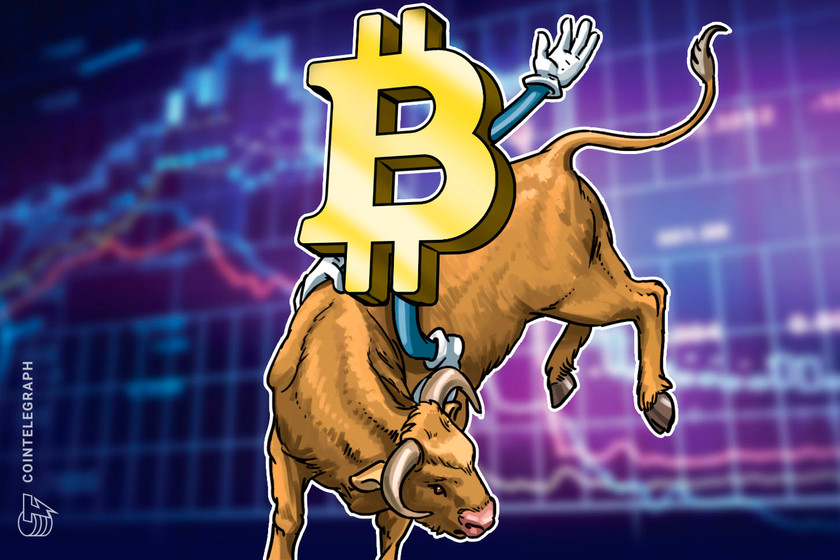People who have studied history will be able to recall the medieval European city-states. In those days, merchant caravans moved from one city to the next, carrying luxury goods and news from faraway places. This lifestyle gave merchants freedom and choice. This concept is very similar to Michael Ondaatje’s The English patient. He envisioned total freedom without any borders or nationalities that would limit people’s efforts to develop and progress.
Today’s open world is marked by a wider access to financial markets via decentralized finance. DeFi is a positive initiative that has allowed wealth accumulation and lower financing. It gives new meaning to “finance-for-all” by removing intermediaries through blockchain technology. This allows financial transactions to be more open while significantly lowering costs. DeFi is clearly the future of finance, and other industries. When will we get there?
DeFi was wrapped in one year
It is amazing to see how in just ten years we have moved beyond Bitcoin ( BTC), as a digital currency and personal bank, and are now at Wrapped BTC, farming and all the other crypto-alchemy.
There are many types of DeFi applications, which reflect the breadth of its integration and its wide range of uses. Decentralized exchanges (DEXs), which allow for the authority-free trading of cryptocurrencies, are a large group of DeFi operations. Stablecoins can be linked to external assets such as precious metals and fiat currencies. The sector is also home to prediction markets and lending platforms.
Related: What is shaping the future institutional crypto market?
DeFi is a popular tool that allows yield farming and liquidity mining. This niche method allows you to take advantage of crypto assets that have become mainstream.
Blockchain cities
Hundreds of cities are now embracing the new paradigm and ready to receive crypto-savvy residents. Seoul, for instance, has a plan to be a global leader of blockchain technology in 2019. Park Won-soon was the mayor at the time. He introduced the Promotion Plan For Blockchain City Seoul which would be the foundation for the Fourth Industrial Revolution. Several administrative services had already begun to use blockchain technology in 2018 before the presentation. The new plan will expand the technology’s capabilities by adding direct democracy, online verification and mileage management through the issue S-Coin, Seoul Citizen cards, and other options.
Another case is Nevada ‘s proposed crypto city. Jeffrey Berns, a cryptocurrency millionaire, conducted the experiment and purchased land in Nevada to create a blockchain-based city. Local government opposition was a major obstacle to the creation of the new city. Politicians were afraid of losing control due to the decentralization component. The recent congressional hearing Web3 offers hope for finding common ground on this subject.
Dubai’s Dubai Blockchain Strategy initiative was launched, making it a key part of the United Arab Emirates Blockchain Strategy 2021. This strategy aims to move at least 50% of government transactions onto blockchain. It saw an opportunity to transform the economy through its innovative strategies. Dubai is home to many blockchain enthusiasts and digital nomads.
Related: The crypto oasis – How the UAE became the Middle East’s digital asset champion
Smart governments
It is clear that failures by governments to harness the potential of DeFi or blockchain could lead to economic stagnation in their respective countries. The central bank’s digital currency (CBDC), has been the main indicator that governments are moving towards blockchain-based technology.
The Atlantic Council developed a tool tracking all nations in terms of their different CBDC project’s stages. Notably, several countries, including South Africa, China, South Africa and Malaysia, as well as South Korea, South Korea, South Korea, Saudi Arabia and the United Arab Emirates, have launched pilot versions of their CBDCs. Moreover, Nigeria, the Bahamas and Eastern Caribbean countries also have their CBDCs launched as working projects.
Many see governments as not just governing institutions, but as service providers. DeFi would enable global economic freedom to allow governments to offer the highest quality services, both in speed and efficiency. This is especially true for crypto assets.
Freedom is responsibility
Your keys are your money in crypto. Your bank is yours. You are your own bank. To quote Michael Ondaatje:
“We are the true countries, not the borders drawn on maps with names of powerful men.”
A nationality does not refer to a place, but rather to belonging to a group. One day, a whole group could move to its own metaverse. Because of the increased competition for skilled professionals in a visa-free environment, whole cities or countries could come up with unique strategies to attract digital nomads. However, would they settle down if they had this freedom?
This article is not intended to provide investment advice. Every trade and investment involves risk. Readers should do their research before making any decision.
These views, thoughts, and opinions are solely the author’s and do not necessarily reflect the views or opinions of Cointelegraph.
Katia Shahova founded Forward PR Studio. She has over 20 years of experience in implementing programs at IT companies, from Fortune 1000 corporations to venture funds and pre-IPO startups. She has a BA in English Philology and German Studies from Santa Clara University, California. She also holds a Master’s in Philology from the University of Gottingen, Germany. Her publications include Benzinga and Investing as well as Hackernoon and Macwelt.






Leave a Reply